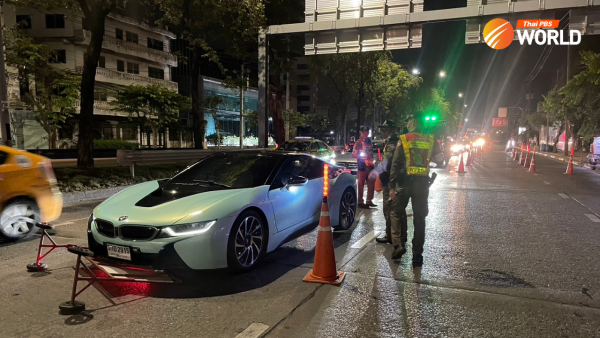Safety net needed to protect vulnerable Thai workers

Eyes on the seams, hands on the cloth, feet on the pedals, seamstresses sew a thousand pieces in an eight hour day and all on minimum wage.
That is life for tens of thousands of such workers across the country, as explained by Vipa Matchachat, a seamstress turned labour activist.
“When you only make ฿350- 500 a day, you can barely survive,” Vipa said. “This is especially true when you have to take care of your parents and/or children.”
One problem leads to another. When labourers cannot support their family on such low pay, they turn to loan sharks. Needless to say, the temporary cash inflow just makes everything worse in the end. The pay eventually goes to pay the interest and labourers have to work even harder, getting a second job, to try to make ends meet.

The story of hard work for a low income is the same for millions of workers across Thailand.
According to the National Statistical Office and Ministry of Labour, the country has a workforce of 38 million and the average monthly wage is only ฿12,644. At the household level, the average monthly income is ฿26,018, with ฿21,329 of expenses.
Though the figures might suggest households can, on average, cover their monthly expense with a few thousand baht extra, the struggle to make ends meet is still very real for many workers.
This is partly due to the fact that 53.7% of the Thai workforce is made up of informal workers, whose income can fluctuate widely. With the COVID-19 pandemic coming into play, the situation just gets worse and the workforce has become more vulnerable than ever.
Assistant Professor Sustarum Thammaboosadee, from Thammasat University, told ThaiPBS World that the situation is critical, adding that “more workers are forced out of the system due to the outbreak, carrying more risk while receiving a lower income. The government should play a key role in resolving this issue and providing security for workers.”
By “security”, Sustarum means that workers need some kind of a safety net, ideally in the form of universal pensions.
A few thousand baht a month can go a very long way to supporting retirees, according to the assistant professor. It not only supports the labourers, who one day will have to retire, but also their parents while they are still working, he said.
At the moment, the pension system is tied to social security, which covers only 15-20% of the workforce.
With COVID-19 and the lockdowns, Sustarum emphasizes that the government must help save jobs and keep people in employment. At the same time, it should also make sure that wages keep pace with the cost of living.
Universal pensions and minimum wage increases may, however, concern a lot of people, because they could require the allocation of a large chunk of taxpayers’ money, as well as adding to the burden on entrepreneurs. Nonetheless, Sustarum insists it is very feasible.
Many, if not all political parties, proposed these or similar policies in their campaigns during the 2019 elections, but have not been able to realise them, he said.
The President of Parliament’s Labour Committee, Suthep Ou-oun, told ThaiPBS World that the committee is devoted to passing laws that will provide justice and security for workers, which includes universal pensions, while admitting that the legislative process can be challenging and take time to complete.
“At the committee level, everyone approves of the legislation, but it also needs to pass the PM,” Suthep said, “and we have to admit that there is a gap between MPs and the PM. We might not be able to reach out to him.”
The Thai Prime Minister, Prayut Chan-o-cha, is not a member of any political part. According to Suthep, the problem with this is that, without a personal connection between the MPs and PM, some agenda, including labour-related legislation on his table, might not get the attention they deserve.

Parliament’s Labour Committee has twice proposed the Labour Protection Bill for the Cabinet to consider without success, Suthep said.
Despite the challenges, Suthep said the committee is committed to pushing for legislation that will provide justice and security for the nation’s workforce. At the top of its agenda are the labour protection bill, an informal workforce bill, a labour relations bill and a social security act amendment bill.
Suthep noted, however, that we are currently in an extraordinary situation. With the COVID-19 outbreak threatening the economy, the main focus right now should be on keeping people in work.
“Wage negotiation is not really a priority at the moment, when people are struggling just to keep their jobs,” the MP said.






